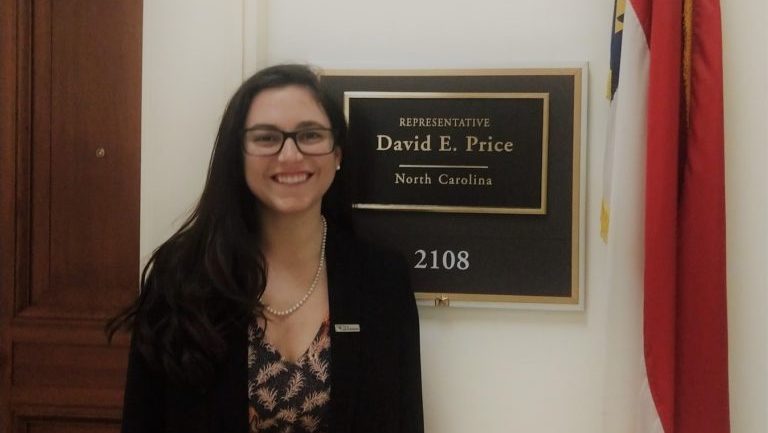Global Change Fellow Provides Firsthand Insight into the Value of Communicating Science

This post was written by Gabrielle Corradino, 2016-17 Global Change Fellow. It summarizes her recent experience traveling to Washington, D.C. alongside Derek Aday, University Director and Aranzazu Lascurain, Assistant University Director.

As a PhD student in my final year, it is quite easy for me to become wrapped up in research and writing. I base all of my choices on a long to-do list focused on experiments with a few teaching responsibilities sprinkled in. My work is centered on plankton, microscopic organisms [that are] important in marine food chains, and it is pretty easy for me to get sucked into their tiny world.
The opportunity to go to Washington, D.C. with the Southeast Climate Adaptation Science Center (SE CASC) came at the perfect time to take me out of research mode and bring me face-to-face with another passion of mine: science advocacy. The goal of the SE CASC trip was to talk to the people who make decisions about funding the science that I, and other researchers associated with the SE CASC, do – and to help them understand the impacts of that science. I was only in D.C. for 48 hours but the experience completely altered my ideas about my future in science. Interacting with congressional staff about applied science projects with SE CASC was incredibly powerful. I loved being in the room(s) where decisions were being made and meeting the people behind them. Before heading to D.C., I was a bit nervous to discuss climate change, sea level rise, anoxic zones or harmful algae blooms (plankton!) with people who, quite frankly, I did not think would be interested in being a part of the conversation. To my surprise, my preconceived ideas on what to expect were incorrect. During meetings, I watched as Aranzazu Lascurain and Dr. Derek Aday discussed ongoing SE CASC programs with natural and cultural resource managers in the representative’s state or district. By highlighting local collaboration and development of tools needed on the community level, the meetings became personal for each staffer.
By simply walking through the House and Senate office buildings with all of the explosive energy from being in the SE CASC meetings, I was able to take a step back from my research and see the bigger picture of science. Yes, research is vital, but it is equally important to understand the broader impacts of each project and how we, as scientists, can be more transparent with our work. Coming back to Raleigh and thinking about my own research, I know that I will work towards developing projects centered around community collaborations in the future.
- Categories:
